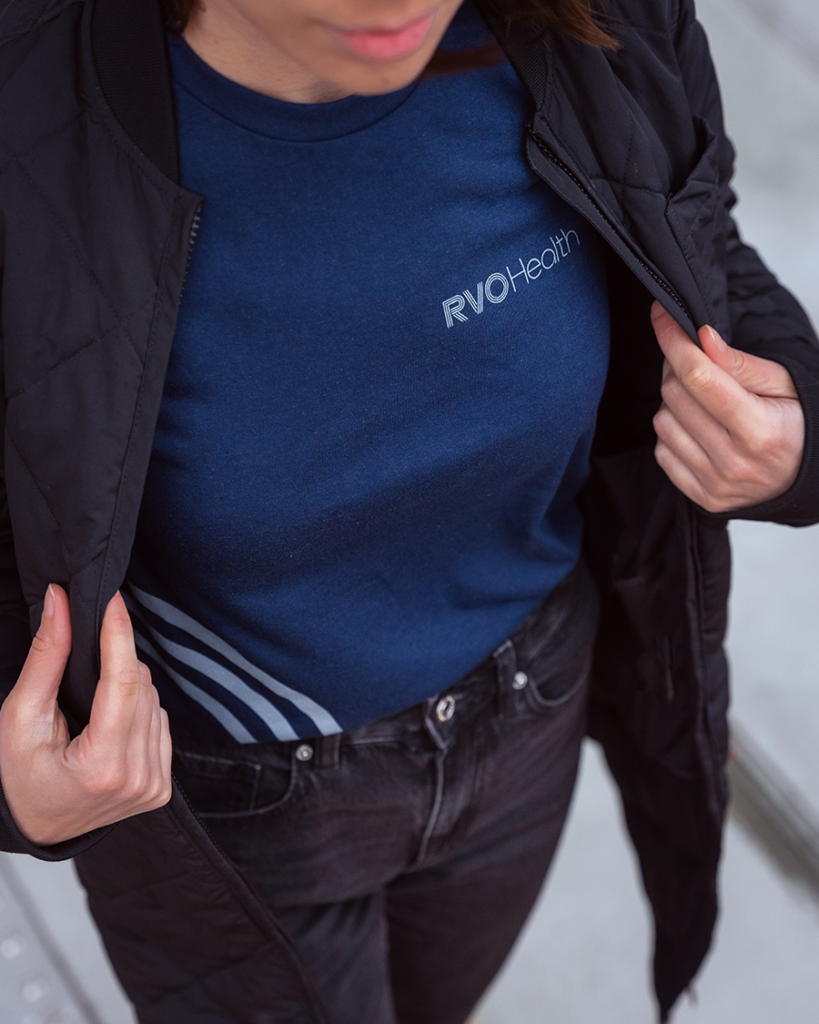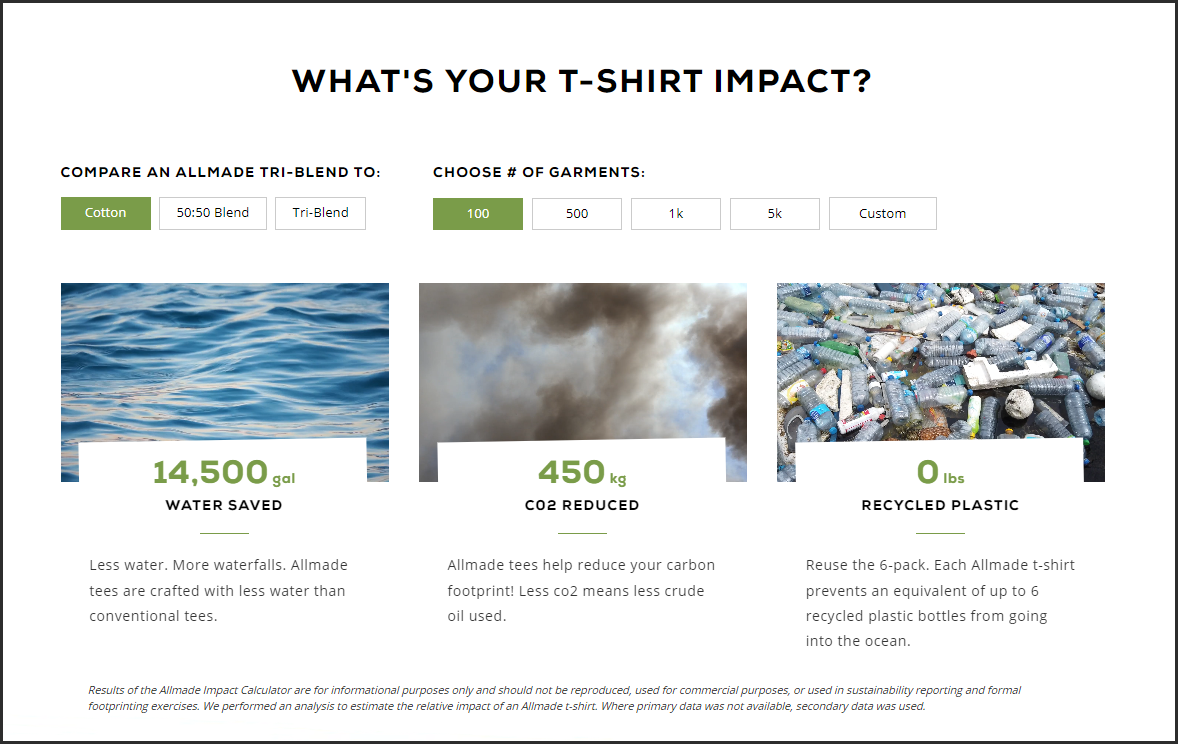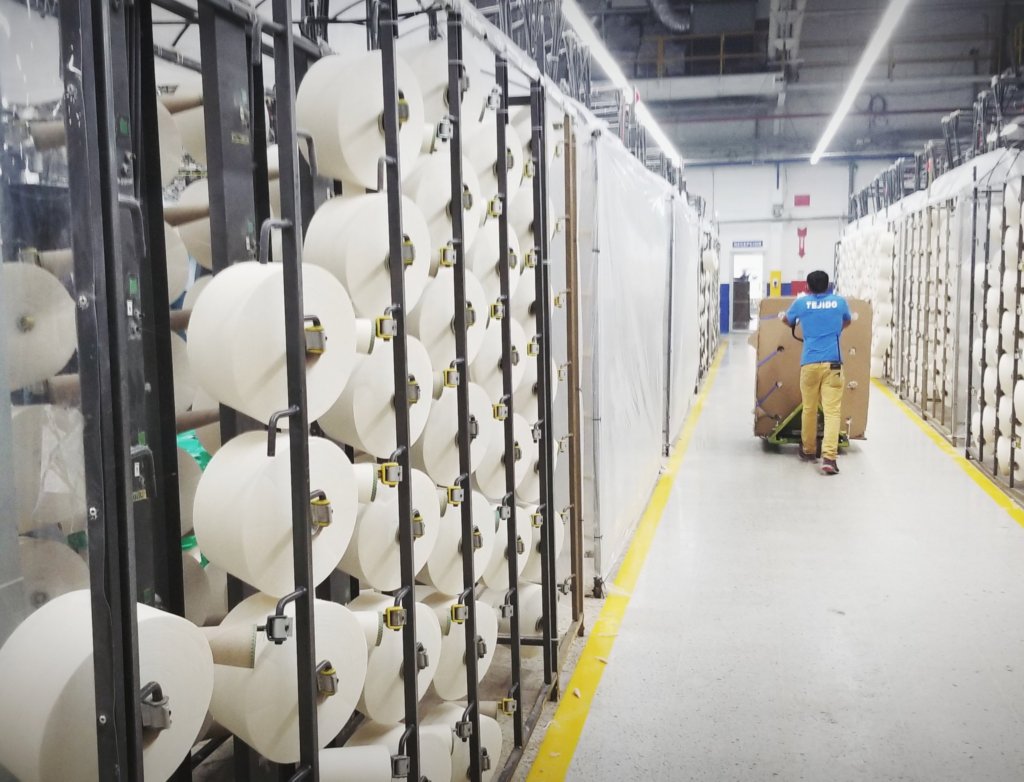The Environmental Impact of a Promo T-Shirt: Considerations for your next promotional marketing Campaign
In today’s global landscape, sustainability has evolved from a niche concern to a fundamental pillar of responsible business. As consumers become more environmentally conscious, the demand for sustainable products, including apparel like T-shirts, has surged.
This shift in consumer behaviour has compelled businesses across industries to reevaluate their practices, particularly in sourcing, manufacturing, and measuring environmental impact.
Custom printed T-shirts are one of our top-selling products, so we thought we’d examine the environmental impact of different T-shirt fabrics to help you make more informed choices for your next promotional products campaign.
The Growing Popularity of T-shirts in Promotional Marketing
T-shirts have emerged as a ubiquitous and impactful promotional item. Their versatility, affordability, and potential for brand visibility make them a go-to choice for businesses looking to connect with their audience.
Done right, T-shirts are a great giveaway. With great branding, they’re universally used and loved. They are a good way to differentiate your team at events, celebrate milestones, and enable your customers to be brand ambassadors. Custom-printed T-shirts are also a great way to showcase your social and environmental values.
However, the mass production of T-shirts raises significant environmental and social considerations, prompting a closer examination of their lifecycle and carbon footprint.



Measuring Environmental Impact of a T-Shirt: A Holistic Approach
When assessing the environmental impact of a T-shirt, it’s essential to adopt a holistic approach that considers the entire lifecycle of the product. This approach, often facilitated through Life Cycle Assessments (LCAs), evaluates environmental factors from raw material extraction to manufacturing, distribution, use, and eventual disposal or recycling.
Exploring Sustainable Material Choices for Custom T-Shirts
One critical decision in reducing the carbon impact of T-shirts lies in choosing sustainable materials. Traditional cotton production, for instance, is notorious for its heavy water usage, pesticide use, and soil degradation. In contrast, organic cotton, recycled polyester, recycled cotton, and sustainable textile blends like those used by our suppliers offer greener alternatives with lower environmental footprints.

How to Calculate the Environmental Impact of a T-shirt.
So how to calculate the impact of your t-shirt choices? Three publicly available tools can help you get started.
1. The Higg Index MSI (Materials Sustainability Index)
The Sustainable Apparel Coalition developed the MSI tool to measure and evaluate the environmental impact of different materials used in the apparel and footwear industries. It provides a standardized method for assessing the sustainability of materials by considering various factors such as resource use, greenhouse gas emissions, water consumption, and chemical impact. By offering detailed insights into the ecological footprint of materials, the Higg Index MSI enables brands, manufacturers, and designers to make more informed decisions in selecting and sourcing materials, ultimately promoting greater sustainability throughout the supply chain.
2. The Selfless Clothes ImpHact Calculator
The Selfless Clothes Impact Calculator is an innovative tool that quantifies the positive environmental and social impacts of sustainable clothing choices. By entering garment information, such as fabric type and production details, users can see metrics on resource savings, reduced carbon emissions, and fair labour practices. This transparency educates consumers about the benefits of choosing ethically made apparel and promotes more conscious consumption. The Selfless Clothes Impact Calculator highlights the importance of sustainability in the fashion industry, encouraging individuals and businesses to make choices supporting environmental stewardship and social responsibility.
3. The Allmade Apparel Impact Calculator
Fairware supplier Allmade Apparel has a user-friendly tool designed to help measure the environmental impact of apparel choices . The calculator provides insights into the resources saved, including water, energy, and greenhouse gas emissions, compared to conventional apparel production by inputting details such as the type and quantity of garments. This transparency lets users understand the positive environmental contributions of choosing sustainably produced clothing. Allmade Apparel’s commitment to sustainability is highlighted through this innovative calculator, empowering more responsible consumption and fostering greater awareness about fashion’s environmental footprint.

Environmental Impact of T-Shirt Materials
The choice of materials significantly impacts a product’s environmental footprint. Tools like Selfless Clothes’ Sustainability Calculator offer insights into material lifecycle impacts, allowing businesses and consumers to make more sustainable choices. For example, each has unique positives and negatives when comparing conventional cotton, a 50/50 blend of organic cotton and recycled polyester, and fully organic cotton. Conventional cotton is resource-intensive, while blends can reduce energy consumption but may be harder to recycle. These comparisons support transparency and guide businesses toward more ethical production. The chart below uses the data provided by this calculator. It compares these materials, noting the previously mentioned MSI scores and the overall fabric scores based on their rating framework, which evaluates individual materials, manufacturing processes, and the end-of-life potential of fabrics.

The Role of Supply Chain Transparency & Blockchain
Brands that prioritize transparency provide consumers with insights into sourcing practices, manufacturing conditions, and the overall sustainability of their products. This transparency fosters trust and enables consumers to make informed choices aligned with their values.
Some of our supplier partners are bringing blockchain technology partners, such as AWARE, to their manufacturing processes to help create traceable products.
Blockchain technology enhances transparency in the fashion industry by providing a secure and immutable ledger that records every transaction and movement of goods. Here’s how it aids transparency:
- Traceability: The blockchain records each step of the supply chain, from raw material sourcing to production, shipping, and retail. This allows stakeholders to trace products’ origin and journey.
- Authentication: Blockchain helps in verifying the authenticity of products. Consumers can check the product’s history and confirm that it is genuine, reducing the risk of counterfeit goods.
- Immutable Records: Once data is added to the blockchain, it cannot be altered. This ensures that the information remains accurate and tamper-proof, providing a reliable record of transactions.
- Real-time Updates: Blockchain provides real-time updates on the status of goods. This increases visibility for all stakeholders, helping them monitor product progress and condition throughout the supply chain.
- Sustainability Claims: Brands can verify and showcase their sustainability practices by recording eco-friendly measures on the blockchain. Consumers can see proof of sustainable sourcing and ethical practices.
- Reduced Fraud: The transparency and security of blockchain make it difficult for fraudulent activities to go unnoticed, ensuring that all parties act with integrity.


Ethical Manufacturing Practices
In addition to environmental considerations, ethical manufacturing practices are integral to measuring the impact of a T-shirt. This includes ensuring fair wages, safe working conditions, and adherence to labour standards throughout production.
Collaborating with manufacturers and suppliers committed to ethical practices is a cornerstone of responsible sourcing. As a university licensee, we are members of the Fair Labor Association, a leading NGO that sets standards and assesses working conditions globally.
Innovations in Sustainable Production
Advancements in technology and innovation play a crucial role in reducing the carbon footprint of T-shirts. Sustainable production methods, such as water-saving dyeing processes, energy-efficient manufacturing facilities, and circular economy initiatives promoting product reuse and recycling, contribute significantly to overall sustainability efforts. Sustainable manufacturing goes beyond the materials themselves.
We recently travelled to Honduras to visit one of our top manufacturing partners and learn more about their sustainability efforts, including green energy systems (the largest rooftop solar array in Latin America), wastewater management, and on-site waste management. Check out the trip report Reciprocity Road Trip: Sustainability and Community Impact with Sanmar.
Consumer Education and Engagement
Empowering consumers with knowledge about sustainable choices and their impact is a key driver of change. Educational campaigns, eco-labelling initiatives, and partnerships between brands and environmental organizations can raise awareness and encourage sustainable consumption behaviours, including the preference for eco-friendly apparel like sustainably sourced T-shirts.
We identify options for better promotional product choices so you can align your values with your custom t-shirts. Check out our EBook, The Art of Materials and Apparel, for a breakdown of the most common materials used for T-shirts. Learn the difference between conventional cotton, recycled cotton, RPET and more.


The Business Case for Sustainability
Beyond ethical considerations, there is a compelling business case for prioritizing sustainability in promotional merchandise. Studies indicate that consumers, particularly younger demographics, prefer brands that demonstrate environmental and social responsibility. Investing in sustainable practices enhances brand reputation, fosters customer loyalty, and attracts eco-conscious consumers.
Supply Chain Collaborative Initiatives and Partnerships
Collaboration among stakeholders, including brands, suppliers, NGOs, and government agencies, is essential for driving systemic change towards sustainability. Initiatives such as industry-wide sustainability pledges, supply chain audits, and knowledge-sharing platforms like the Fair Factory Clearinghouse facilitate collective action and foster a culture of continuous improvement.
The Path Forward: Innovation and Impact
As we navigate the complexities of measuring the carbon impact of T-shirts and promoting sustainable sourcing, innovation remains a key driver of progress. From sustainable materials to renewable energy adoption and circular economy models, continuous innovation is essential for creating a more sustainable and resilient apparel industry.
Conclusion: Embracing Sustainability as a Collective Responsibility
In conclusion, the journey towards measuring the carbon impact of a T-shirt and embracing sustainable sourcing is a multifaceted endeavour that requires collaboration, innovation, and a commitment to environmental and social responsibility.
By adopting holistic approaches, prioritizing transparency, and empowering consumers, businesses can not only reduce their environmental footprint but also contribute to a more sustainable and equitable future for all stakeholders involved.
Together, we can harness the power of sustainability to create meaningful impact and drive positive change in the apparel industry and beyond.
See something you like or want to learn more?
